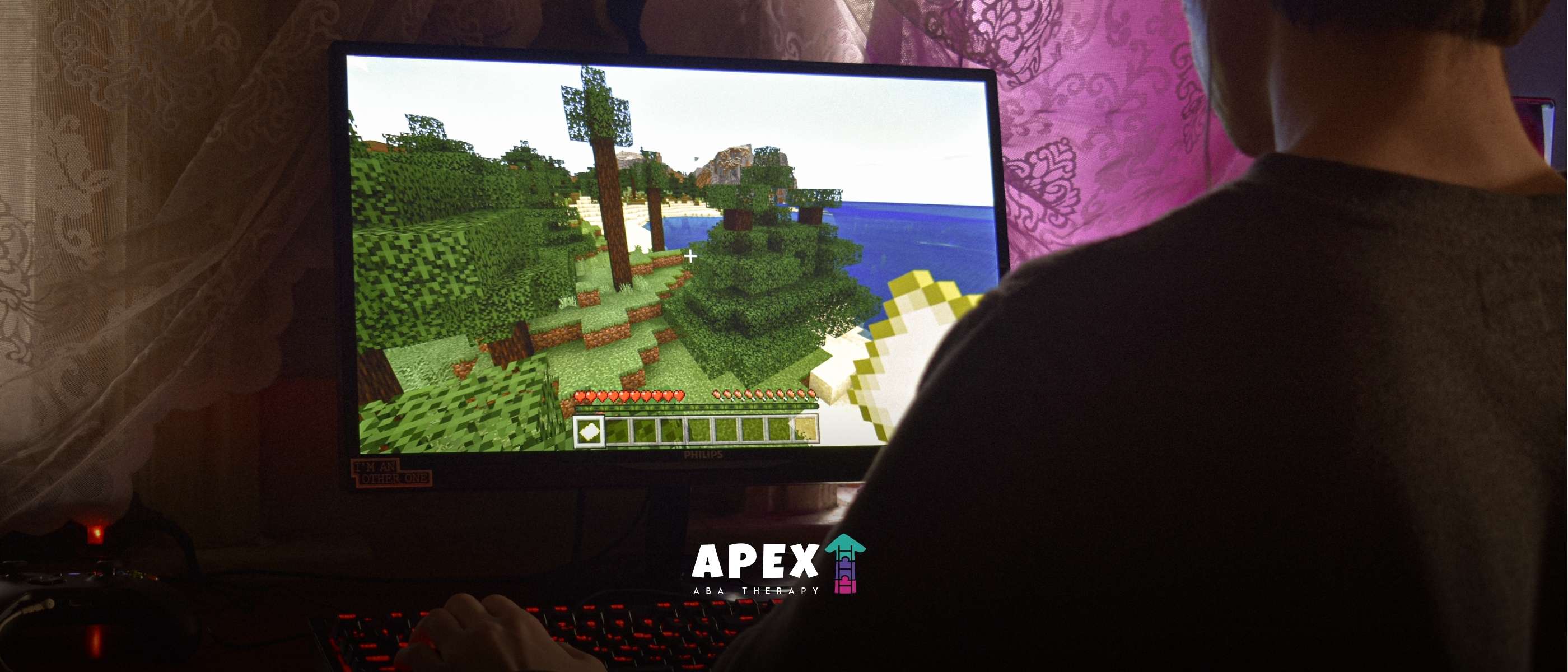Sensory Seeking vs. Sensory Avoiding In Children
Dive into the human side of the discussion on sensory seeking vs. sensory avoiding in children. Uncover personal stories, insights, and the nuanced understanding of how children navigate their sensory experiences.

Sensory Seeking vs. Sensory Avoiding In Children
Understanding Sensory Processing Disorder (SPD)
Sensory Processing Disorder (SPD) is a condition that affects how the brain processes and interprets sensory information from the environment and the body. This can result in difficulties in effectively responding to sensory stimuli. Understanding SPD is essential for providing appropriate support and interventions for children experiencing these challenges.

What is Sensory Processing Disorder?
Sensory Processing Disorder, also known as Sensory Integration Dysfunction, is a neurodevelopmental disorder that affects the way individuals perceive and respond to sensory input. The sensory input can come from any of the five senses: sight, sound, touch, taste, and smell. Children with SPD may have difficulty processing and organizing this sensory information, leading to atypical responses.
SPD is not recognized as a standalone diagnosis in the Diagnostic and Statistical Manual of Mental Disorders (DSM-5). However, it is often seen in individuals with other conditions such as autism spectrum disorder, attention-deficit/hyperactivity disorder (ADHD), and developmental delays.

How Does SPD Affect Children?
SPD can manifest in different ways, and the effects can vary from one child to another. Some children may have an over-responsive or hypersensitive response to certain sensory stimuli, while others may have an under-responsive or hyposensitive response. Additionally, some children may exhibit a combination of both.
Children with sensory processing difficulties may struggle with everyday activities that involve sensory input, such as dressing, eating, social interactions, and learning. They may have difficulty staying focused, become easily overwhelmed, or exhibit challenging behaviors in response to sensory stimuli.
Understanding the specific sensory challenges a child faces is essential for developing effective strategies and interventions to help them thrive. By recognizing the impact of SPD on children, caregivers, educators, and healthcare professionals can work together to provide appropriate support and create an environment that meets their unique sensory needs.
Sensory Seeking vs. Sensory Avoiding
When it comes to sensory processing disorder (SPD) in children, understanding the difference between sensory seeking and sensory avoiding behaviors is essential. Children with SPD may exhibit either of these behaviors as a way to cope with their sensory experiences.
Sensory Seeking Behavior
Sensory seeking behavior is characterized by actively seeking out sensory input. Children who engage in sensory seeking behavior may demonstrate a constant need for stimulation and may appear restless or hyperactive. They may seek intense sensory experiences and engage in activities that provide sensory input, such as spinning, jumping, or touching various textures.
Some common sensory seeking behaviors in children include:
- Craving deep pressure, such as seeking tight hugs or squeezing into small spaces
- Enjoying activities that involve movement, such as swinging or spinning
- Seeking out tactile sensations, such as touching different textures or rubbing objects
- Preferring loud or repetitive sounds
- Being drawn to bright or visually stimulating objects
Understanding sensory seeking behavior is crucial for caregivers and educators, as it helps to identify the specific needs of children with SPD and provide appropriate support.
Sensory Avoiding Behavior
On the other hand, sensory avoiding behavior involves actively avoiding or withdrawing from sensory input that feels overwhelming or uncomfortable. Children with sensory avoiding behavior may exhibit sensitivity to certain sensory experiences, leading them to avoid specific activities, environments, or stimuli.
Some common sensory avoiding behaviors in children include:
- Preferring quiet or low-stimulus environments
- Being sensitive to certain textures, smells, or tastes
- Avoiding crowded or busy places
- Disliking bright lights or strong smells
- Reacting negatively to loud or sudden sounds
Children with sensory avoiding behavior may become anxious or distressed when exposed to sensory stimuli that they find overwhelming. Understanding and recognizing these behaviors is crucial for creating a sensory-friendly environment that supports their needs.
By understanding the differences between sensory seeking and sensory avoiding behaviors, caregivers and educators can better support children with SPD. It is important to remember that each child's sensory needs are unique, and a personalized approach is necessary to provide the appropriate support and interventions.
Collaborating with professionals and implementing strategies that address sensory seeking and sensory avoiding behaviors can greatly improve the well-being and quality of life for children with SPD.
Signs and Symptoms of Sensory Processing Disorder
Recognizing the signs and symptoms of Sensory Processing Disorder (SPD) is crucial for early identification and intervention. SPD can manifest in different ways, with some children displaying sensory-seeking behaviors, while others exhibit sensory-avoiding behaviors. Understanding these signs and symptoms can help caregivers and professionals provide the necessary support and accommodations for children with SPD.
Sensory Seeking Signs and Symptoms
Children with sensory-seeking behaviors actively seek out sensory experiences to fulfill their sensory needs. Some common signs and symptoms of sensory seeking in children with SPD include:
- Craving intense sensations: Sensory seekers often seek out intense sensory experiences, such as loud noises, bright lights, or strong tastes.
- Repetitive behaviors: They may engage in repetitive movements or actions that provide a specific sensory experience, such as rocking, spinning, or flapping their hands.
- Preference for certain textures: Sensory seekers may enjoy touching or feeling certain textures, such as soft fabrics or rough surfaces.
- High activity level: They may exhibit a higher level of energy and engage in active movement to fulfill their sensory needs.
Sensory Avoiding Signs and Symptoms
Children with ADHD who engage in sensory avoiding may exhibit a range of behaviors and reactions. Some common manifestations of sensory avoiding in children with ADHD include:
- Covering ears or eyes: Children may cover their ears to block out loud noises or cover their eyes in response to bright lights.
- Avoiding certain textures: Children may avoid touching or interacting with certain textures, such as sticky substances or rough fabrics.
- Sensitive to smells: Children may be sensitive to certain smells, finding them overpowering or unpleasant.
- Selective eating: Children may be particular about the tastes and textures of food and may avoid certain foods based on their sensory properties.
- Withdrawal during overwhelming situations: Children may withdraw or become passive in situations where sensory stimuli are overwhelming, such as in crowded environments or during noisy activities.
Recognizing these signs and symptoms is an essential step toward understanding and supporting children with sensory processing difficulties. If you suspect that your child may have SPD, it is advisable to consult with a healthcare professional or occupational therapist for a comprehensive evaluation and guidance on appropriate interventions.
In the next section, we will explore strategies and approaches for managing sensory processing difficulties, including sensory integration therapy, environmental modifications, and occupational therapy.
Strategies for Managing Sensory Processing Disorder
When it comes to managing Sensory Processing Disorder (SPD) in children, there are various strategies that can be implemented to help minimize sensory challenges and support their overall well-being. Three key strategies for managing SPD include sensory diet and sensory integration therapy, environmental modifications, and occupational therapy.
Sensory Diet and Sensory Integration Therapy
A sensory diet refers to a personalized set of sensory activities designed to meet the sensory needs of a child with SPD. These activities can include a combination of sensory-seeking and sensory-avoiding activities, tailored to the individual child's sensory preferences and sensitivities. The goal of a sensory diet is to provide the child with the sensory input they need to stay regulated and focused throughout the day.
Sensory integration therapy is a specialized form of therapy that focuses on improving sensory processing abilities. It involves engaging the child in structured activities that challenge their sensory system in a controlled and therapeutic manner. The therapy aims to help the child integrate and respond appropriately to sensory information, improving their overall sensory processing abilities.
Environmental Modifications
Making environmental modifications can greatly benefit children with SPD. Creating a sensory-friendly environment involves adjusting the sensory stimuli in the child's surroundings to minimize triggers and support their sensory needs. This can include reducing background noise, providing calming or stimulating sensory elements, and organizing the environment to promote predictability and structure.
By creating a sensory-friendly environment, caregivers can help reduce sensory overload and create a more supportive space for the child to thrive.
Occupational Therapy
Occupational therapy plays a crucial role in managing SPD. Occupational therapists with expertise in sensory processing evaluate the child's specific sensory challenges and develop individualized intervention plans. Through a combination of therapeutic activities, exercises, and play, occupational therapists work with the child to improve their sensory processing skills and enhance their ability to engage in daily activities.
Occupational therapy aims to help children with SPD develop the necessary skills to navigate their sensory experiences more effectively. This can include improving their ability to self-regulate, enhancing their motor skills, and providing strategies to cope with challenging sensory situations.
By implementing these strategies, caregivers can play an active role in managing their child's sensory challenges associated with SPD. It's important to remember that each child is unique, and the strategies that work best may vary. Collaborating with professionals, such as occupational therapists, can provide valuable guidance and support in developing an effective management plan for your child.
Supporting Children with Sensory Processing Disorder
When it comes to supporting children with Sensory Processing Disorder (SPD), creating a sensory-friendly environment, developing coping strategies, and collaborating with professionals are essential components.
Creating a Sensory-Friendly Environment
Creating a sensory-friendly environment is crucial for children with SPD. This involves making adjustments to the child's physical surroundings to minimize sensory triggers and promote comfort. Some strategies for creating a sensory-friendly environment include:
- Reducing sensory stimulation: Minimize loud noises, bright lights, and overwhelming visual clutter that may overwhelm the child. Consider using curtains or blinds to control natural light, using noise-canceling headphones, and providing a quiet space for the child to retreat to when needed.
- Providing sensory tools: Offer a variety of sensory tools, such as fidget toys, weighted blankets, or chewable jewelry, to help children regulate their sensory input and provide a sense of comfort.
- Creating designated spaces: Designate specific areas in the home or classroom where the child can engage in sensory activities or retreat for quiet time. These spaces can be equipped with sensory materials and calming elements, such as soft lighting or bean bags.
By creating a sensory-friendly environment, children with SPD can feel more comfortable and better able to navigate their surroundings.
Developing Coping Strategies
Developing coping strategies is vital for children with SPD to manage sensory challenges effectively. These strategies can help children regulate their responses to sensory stimuli and cope with overwhelming situations. Here are some coping strategies that can be beneficial:
- Deep breathing and relaxation techniques: Teach the child deep breathing exercises or mindfulness techniques to help them calm their nervous system when faced with sensory overload.
- Visual supports: Use visual supports, such as visual schedules or social stories, to help children understand and anticipate sensory experiences, transitions, and daily routines.
- Sensory breaks: Encourage the child to take sensory breaks when they feel overwhelmed. These breaks can involve activities that provide a calming or organizing sensory input, such as swinging, jumping on a trampoline, or engaging in deep pressure activities.
By developing coping strategies, children with SPD can learn to self-regulate and navigate sensory challenges more effectively.
Collaboration with Professionals
Collaboration with professionals is an essential aspect of supporting children with SPD. Professionals such as occupational therapists and special education teachers can provide valuable guidance and expertise. They can help develop individualized strategies and interventions tailored to the child's specific sensory needs. Collaborating with professionals may involve:
- Seeking occupational therapy: Occupational therapists specialize in sensory processing and can provide evaluations, therapy sessions, and guidance on sensory integration techniques. They can work with the child to address specific sensory challenges and develop personalized treatment plans.
- Consulting with educators: Collaborate with educators to ensure that the child's sensory needs are understood and accommodated in the educational setting. This may involve working together to implement sensory supports and modifications in the classroom.
By partnering with professionals, caregivers can access the expertise and resources necessary to support children with SPD effectively.
Supporting children with SPD requires a multifaceted approach that includes creating a sensory-friendly environment, developing coping strategies, and collaborating with professionals. By implementing these strategies, caregivers can help children with SPD thrive and navigate their sensory experiences more successfully.
Summary
the exploration of sensory seeking vs. sensory avoiding in children is a deeply human journey, rich with personal stories and insights. It's not just about categorizations; it's about understanding and supporting the unique sensory experiences of each child.
As we wrap up this exploration, let's approach the topic with empathy, recognizing the diverse ways children engage with their surroundings. It's a journey where every child's story adds depth to our understanding and appreciation of the rich sensory tapestry that shapes their individual experiences.
Sources
Frequently Asked Questions
More posts you’ll enjoy

How Minecraft and Autism Foster Creativity in Kids
Explore the unique ways this popular game fosters imagination and innovative thinking.

Visual, Auditory, Kinesthetic: How Autism Learning Styles Impact Teaching at Every Age
Discover how autistic individuals learn best (visual, auditory, reading/writing, kinesthetic) across all ages.

Sensory Friendly Shopping: Tips for a Calm Experience
Discover tips for sensory friendly shopping to create a calm and enjoyable experience.



